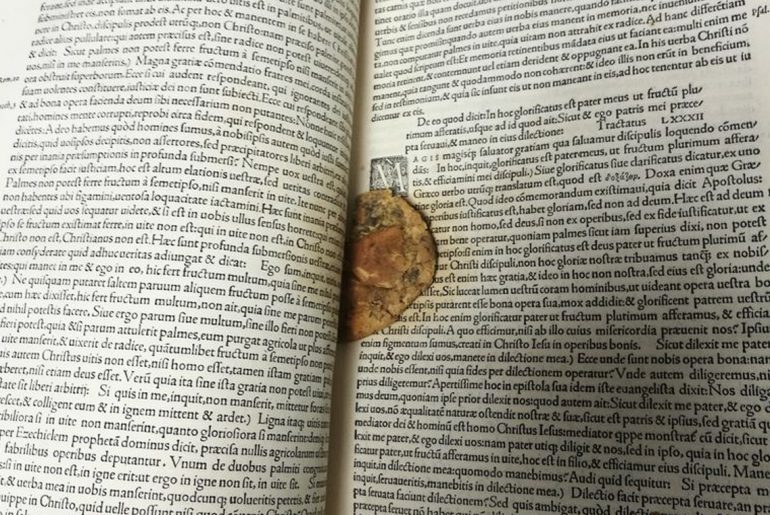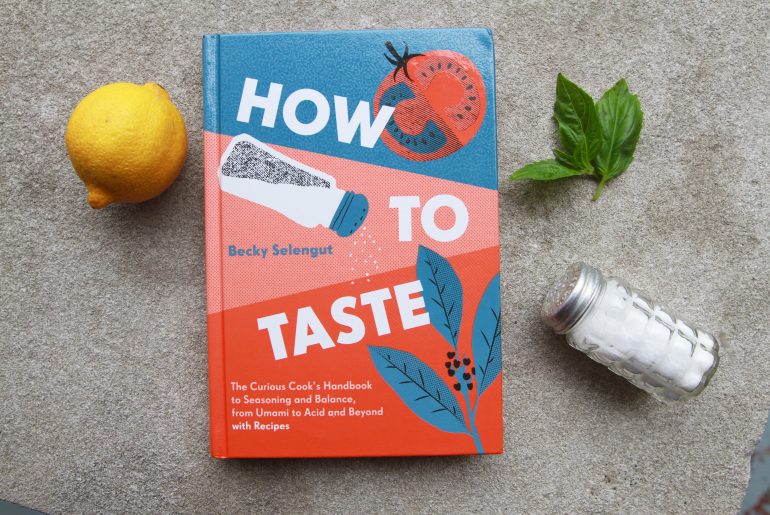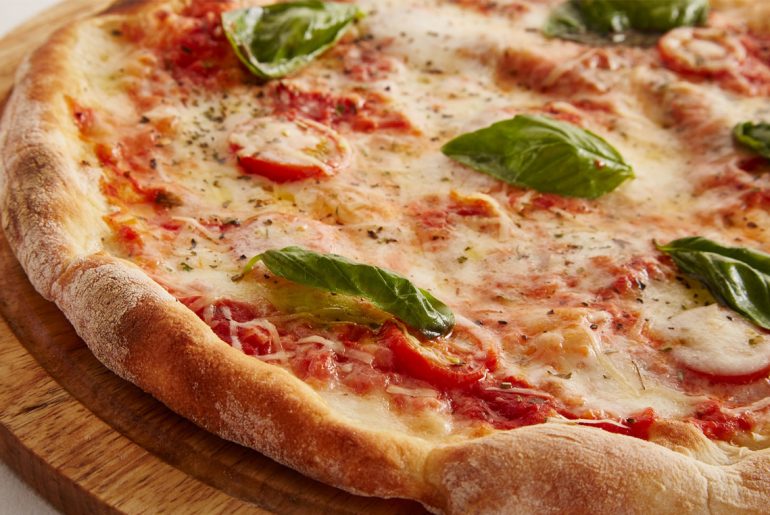When it comes to marking a book page, we all have our habits. Some fold the page corner back lightly, others use fancy bookmarks or ribbon to save their spot. All reasonable methods to choose from, but someone had other ideas—food. Recently, a librarian found a 1529 manuscript with a half-eaten cookie stuffed between two pages. The strange situation went viral when Cambridge University Library Special Collections tweeted a photo of the cookie stuffed inside the book, a copy of St. Augustine dating back to 1592. The library tweeted a photo of the scene with this gentle reminder for guests: Today’s unexpected discovery in a 1529 volume of Augustine. For future reference, we have acid free paper to mark your place. Please don’t use baked goods.” The cookie appears to be chocolate chip, but it’s believed to have happened about 50 years ago, according to The Vintage News, and before…
“How to Taste” handbook is a game changer for home cooks
Perhaps the best handbooks are the ones we didn’t know we needed. If you’ve ever wondered why your dinner turned into a disaster, or you think salt is the savior of all your culinary problems, Here to Taste ($17.99, 240 pages) is here to help. Everyday, home cooks fiddle in the kitchen without really understanding why we do the things we do — some spices here, hotter temperatures there. But are these decisions really making our food the best it can be? There’s a lot that goes into the underlying principles of flavorful food, and certainly most of us wouldn’t have time to research it all (I mean, that sounds fun and all…). But you’ll be thankful that author Becky Selengut made this her mission as well as the focus of her latest book, How to Taste. Her approach to writing includes just the right about of geeky food science, laugh-out-loud humor, and aha moments on every page to keep your attention and make you…
Study says pizza can make you a more productive person
A recent study showed what office workers around the world already knew — the promise of pizza is good for productivity. The discovery was made by psychologist Dan Ariely and explained in further detail in his book Payoff: The Hidden Logic That Shapes Our Motivations. Pizza proves to be the biggest motivator — more than even cash or compliments. Ariel’s experiment used four separate groups of employees at an Intel semiconductor factory in Israel. Workers were to receive rewards for their increased productivity. One group was offered a bonus payment of about $30. Another group was offered pizza. A third group would receive a compliment from their boss, and the fourth group was offered nothing. Ariel found that cash and compliments didn’t do as much to motivate the workers as the pizza — initially. The Cut reported that after the first day, the pizza group increased productivity by 6.7 percent over…
Kombucha and cotija among foods to finally earn dictionary entries
Merriam-Webster announced this week that it will add 850 new words to its online dictionary — and our ever evolving love of food can be thanked for many of them. “In recent years, a the richest source of these newly adopted foreign-language words has been the world of food-or, perhaps we should say: the food of the world,” Merriam-Webster said in a news release about the dictionary update. Among the new class of words is “aquafaba,” or the leftover water that results from cooked beans. The liquid is used in many vegan dishes and is ofter used as an egg white substitute. “Cotija,” the Mexican hard cow’s milk cheese named after the town in the Mexican state of Michoacán. “Harissa” is a versatile fiery and garlicky paste spice from North Africa. Seemingly late comers to the dictionary are the fermented and effervescent tea drink kombucha and the raw seafood dish “poke.” If…




